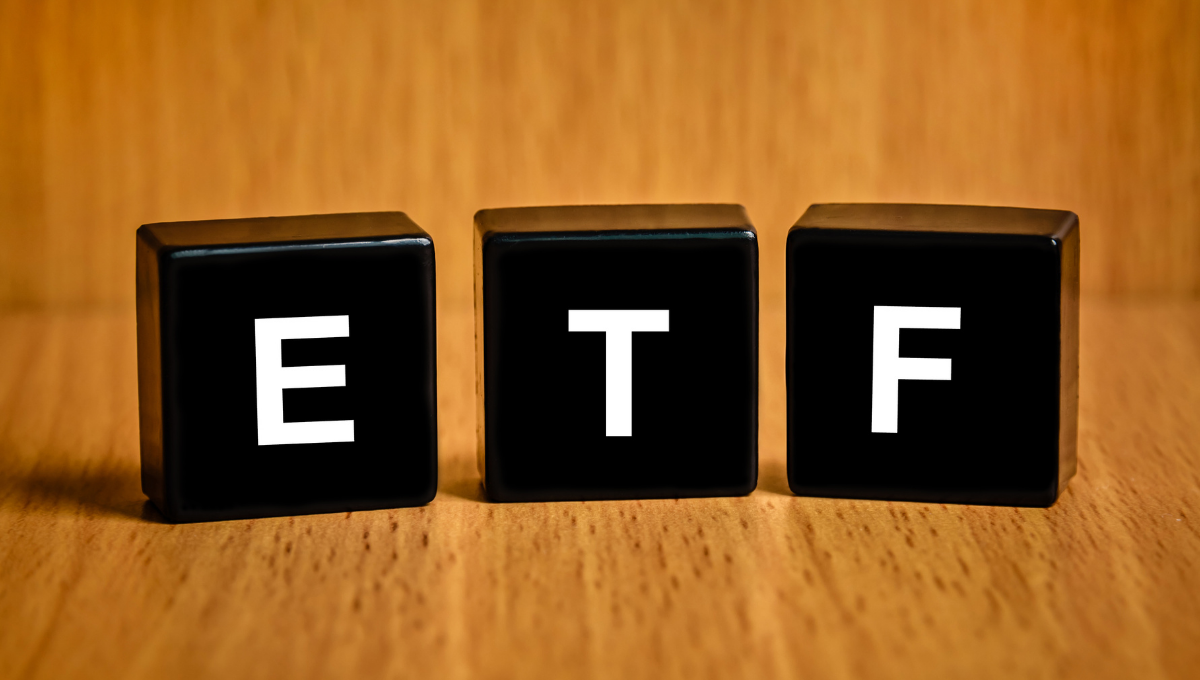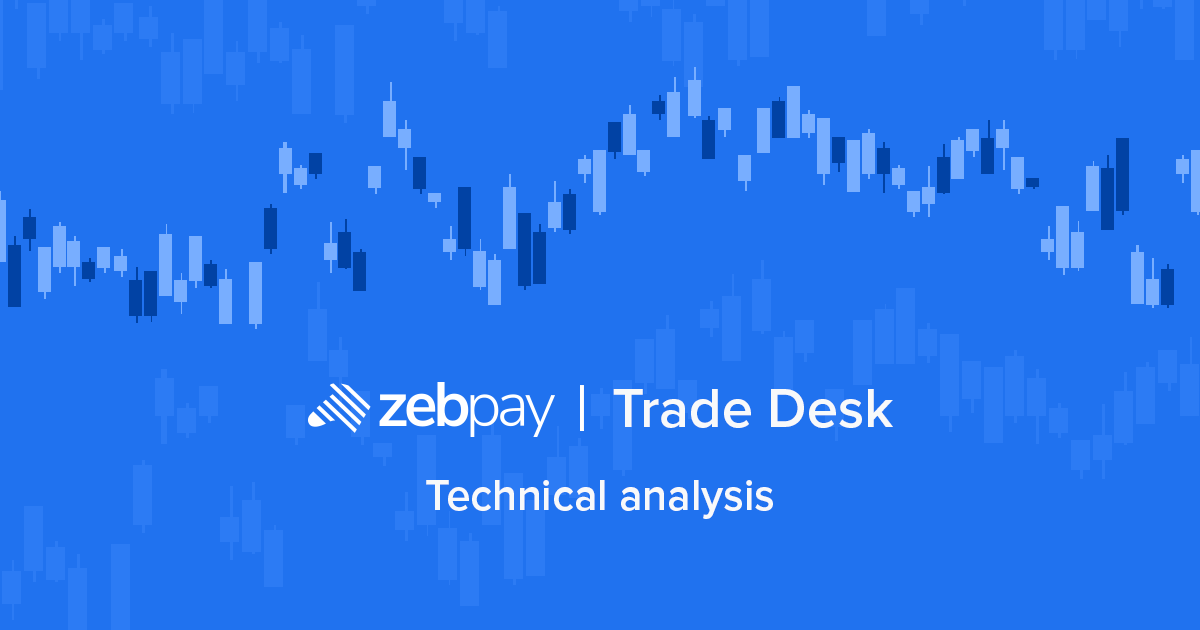11 August 2021 | ZebPay Trade-Desk
Exchange-traded funds (ETFs) are securities that track indexes, industries, commodities, or other assets, but can be bought and sold on stock exchanges like ordinary stocks. From the price of the product to a variety of values. ETFs can even be constructed to pursue specific investment strategies. ETF stock prices fluctuate throughout the day as ETFs are bought and sold; this is in sharp contrast to mutual funds, which trade only once a day after the market closes. Compared with buying stocks separately, ETFs offer lower expense ratios and lower brokerage commissions.
Cryptocurrency exchange-traded funds (ETFs) theoretically operate like any other ETF. Although most ETFs track an index or a basket of assets, crypto ETFs track one or more digital tokens. Just as common stocks work where the price of the asset fluctuates throughout the day as investors buy and sell, crypto’s work the same way. A crypto ETF can track a single cryptocurrency or a basket of different tokens and currencies. There are many opinions on the market that allow you to use cryptocurrencies without the need for investors to manage digital assets themselves. However, these options are subservient to traditional ETFs in many ways. And with the help of a blockchain fund, one can invest in companies closely related to the cryptocurrency market, thereby realizing indirect investment in space.
In order for a crypto ETF to operate efficiently, the fund manager must own the underlying assets it tracks; that is, the ETF must have a certain percentage of digital tokens. Presented in the form of stocks, by purchasing these stocks, ETF investors become the indirect owners of these tokens. ETF investors have the opportunity to take advantage of the growth potential of related assets.
For those who are interested in digital currencies, it is important to note that there are not many crypto ETFs out there yet, as it is a relatively new domain, meaning one has a very limited choice, but to own cryptocurrencies directly or through futures contracts in other ways.
The US Securities and Exchange Commission (SEC) stated that it will not approve cryptocurrency ETFs until the market shows a certain degree of stability and security. However, the SEC’s position has not prevented all parties from launching digital currency ETFs. Coinbase, an extremely popular centralized exchange, released an index fund supplying publicity to 4 of the most important virtual currencies, however, that’s now no longer pretty similar to an ETF. Some ETFs even provide small exposure to BTC, however, those aren’t solely centered on cryptocurrencies.
The Chicago Board of Options Exchange (CBOE), which launched Bitcoin futures, has partnered with the U.S. Securities and Exchange Commission (SEC) to amend its previous ban on digital token funds. Cameron and Tyler Winklevos, the founders of the popular Gemini digital currency exchange, continued to ask the US Securities and Exchange Commission to approve the Bitcoin ETF, but they were unsuccessful. The US Securities and Exchange Commission (SEC) has announced that it is open to the possibility of creating cryptocurrency funds in the future. If cryptocurrency ETFs flourish in other parts of the world, this may further stimulate investor optimism. For example, encrypted ETFs have been launched in multiple markets in Europe and Asia.
As of now, there are not many publicly traded cryptocurrency ETFs in the world, however, the most prominent one is BLOK with funds under management of about $1.2 BIllion. A fund that operates in a similar fashion, and is increasingly growing in popularity is the Grayscale Bitcoin Investment Trust (GBTC). The behavior of this trust is similar to an ETF-it stores bitcoins on behalf of investors. And enable them to trade shares in the trust. But the fund’s sponsor, Grayscale Investment Trust, charges a management fee of 2% of the fund’s assets each year, which is significantly higher than most other ETFs. As the first trust of its kind, GBTC also experienced some strange price fluctuations due to changes in the value of Bitcoin. Although people expect GBTC to be correlated with the price of Bitcoin, this has not always been the case until now. It is now available in other major crypto assets like Etheruem, BAT, Chainlink, Litecoin, Stellar, Bitcoin Cash, etc. Another popular fund is Grayscale’s Ethereum Investment Trust, which works in an identical way like GBTC, just the underlying core asset is ETH.
| GBTC | ETHE | |
| Inception Date | 9/25/2013 | 12/14/2017 |
| Annual Fee | 2% | 2.5% |
| AUM | $29.6 Bn | $9.8 Bn |
| Shares Outstanding | 692,370,100 | 310,158,500 |
| Asset per share | 0.000938634 | 0.010140584 |
The investors who want to participate in digital currency ETFs have limited options; if you have the opportunity, investing in international ETFs is one way. If they meet the strict requirements for investing in GBTC, this is another opportunity. Perhaps it is best to look at the sister group of ETFs: Blockchain ETFs. Blockchain technology supports the cryptocurrency space and is closely related to digital tokens. More and more ETFs are targeting blockchain companies. This may include developers and manufacturers of computer processors intimately related to the cryptocurrency industry. ETFs such as Amplify Transformational Data Sharing ETF (BLOK) and Reality Shares Nasdaq NextGen Economy ETF (BLCN) provide investors with access to companies that focus on blockchain. Many of these ETFs have achieved great success.
The table below shows the Return on the market price of the 2 major assets in the Grayscale Investment Trust.
| Asset | 1 Month | 3 Months | YTD | 12 Months |
| GBTC | 39.37% | -17.77% | 20.47% | 195.18% |
| ETHE | 48.31% | -13.69% | 95.29% | 186.77% |
The table below shows the Return on Holdings/Share of the 2 major assets in the Grayscale Investment Trust.
| Asset | 1 Month | 3 Months | YTD | 12 Months |
| GBTC | 37.77% | -21.50% | 56.56% | 276.27% |
| ETHE | 47.21% | -23.70% | 315.60% | 671.53% |
Some of the most successful cryptocurrencies have made incredible profits, but the industry is still surrounded by uncertainty and high volatility, so many investors would rather use tools such as ETFs to participate in the cryptocurrency space. Currency ETFs allow investors to use tokens and leave control and security to experts. Since cryptocurrency and digital token transactions are still the common goals of thieves and scammers, it is understandable that investors hope to take these additional precautions.
Compared with investing directly in cryptocurrencies, cryptocurrency ETFs have many advantages. First, as mentioned above, digital exchanges and wallets are very vulnerable to attacks and theft. Investors who own digital tokens risk the disappearance of their assets and have almost no funds. However, investors in digital currency ETFs have an extra layer of security among the custodians supported by the ETF. Another benefit of a cryptocurrency ETF is that it allows multiple digital tokens to be tracked at the same time. The world of cryptocurrency is very fragmented, and investors who want a basket (such as 20 different tokens) may need to own and manage multiple wallets and accounts in different digital currency exchanges.
Compared with other investment themes, blockchain ETFs often have additional sources of volatility. These risks may be related to the market, such as price assessments or sudden changes in investor sentiment, or macro risks, such as additional government regulations. For savvy investors and retailers, estimating the value of Bitcoin and other cryptocurrencies (such as Ethereum, XRP, and Tether) remains a challenge.
Disclaimer : This report is not intended to be relied upon as advice to investors or potential investors and does not take into account the investment objectives, financial situation or needs of any investor. All investors should consider such factors in consultation with a professional advisor of their choosing when deciding if an investment is appropriate. The Company has prepared this report based on information available to it, including information derived from public sources that have not been independently verified. No representation or warranty, express or implied, is provided in relation to the fairness, accuracy, correctness, completeness or reliability of the information, opinions or conclusions expressed herein. This report is preliminary and subject to change; the Company undertakes no obligation to update or revise the reports to reflect events or circumstances that arise after the date made or to reflect the occurrence of unanticipated events. Trading & Investments in cryptocurrencies viz. Bitcoin, Bitcoin Cash, Ethereum etc.are very speculative and are subject to market risks. The analysis by Author is for informational purposes only and should not be treated as investment advice.


